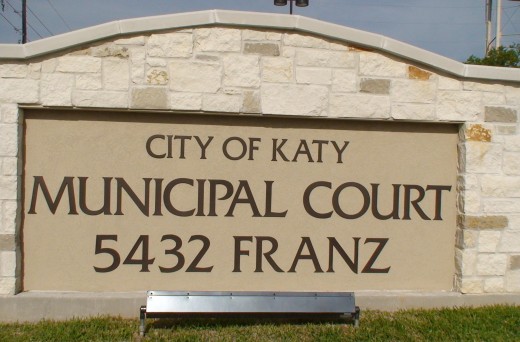Deferred Adjudication


By Joan Whetzel
Deferred adjudication, one form of plea deal, occurs when a defendant either pleads "guilty" or "no contest" to criminal charges. In exchange for the plea, the defendant must meet a set of conditions (e.g. fines, probation, treatment program, community service, community supervision, a diversion program, anger management program) assigned by the court, within a specified amount of time (i.e. 6 months, 1 year). Once these conditions have been met, the defendant avoids having a formal conviction placed on his or her record, or the case may be dismissed altogether. The record is supposed to be expunged or placed under an order of "non-disclosure." Deferred adjudication may only be available for some offenses, though.
How Deferred Adjudication Works
Deferred adjudication is, technically, a form of probation which lasts a set amount of time, and when successfully completed, is supposed to be "dismissed" or disappear from the defendant's record. Basically, the judge is delaying the judgment, adjudication. What happens is that the defendant enters the "guilty" or "no contest" plea. The judge then defers the plea, sets up the conditions of the probationary period, and gives the defendant the opportunity to complete conditions of the probation. If the terms of the probation have been met, the guilty plea disappears and the defendant's record is supposed to be cleared.. Each State, though, has its own variation on how it actually goes down, as well as how it may - or may not - show up on one's record.
In Texas, pleading guilty or no contest under a deferred adjudication ruling is not considered a conviction, as long as the conditions of the deferred adjudication have been met. The arrest and adjudication will show up on the record, but it won't show up as a conviction.
The length of the probationary period depends on the crime, the judge, and the state in which it occurred. Minor misdemeanors (lesser crime, punishable by a fine and/or jail time up to 1 year), such as a traffic violation, carry a short probation period with fewer conditions that need to be met. More serious misdemeanors, along the lines of assault and battery, may carry probationary periods that can last up to a few years. Felonies (serious crimes that carry stiffer penalties) carry probationary periods that can last up to 10 years.
Ramifications of Deferred Adjudication
The best advice, if offered a Deferred Adjudication plea, is to talk to a lawyer as he or she can advise you about the exact consequences for accepting this plea agreement. Deferred Adjudication differs from a straight out probation in that the deferred adjudication is not considered a conviction whereas the straight probation is a conviction. Each state has its own laws about what happens once the terms of the plea agreement have been met. The deferred adjudication and arrest may well remain on your record, as in Texas, it may be expunged (erased permanently), or simply placed under a "no disclosure" order, meaning it's still there but the record has been sealed. Under certain circumstances, even a sealed record can be unsealed. The record will always be visible to law enforcement and can show up during high-level government background checks.
In the case of the State of Texas, the deferred adjudication judgment is not treated as a conviction, but there is no easy way to get it permanently removed from one's record. This could create problems when applying for jobs or trying to rent an apartment where background checks are routinely done. Many people have shocked to find that the State Legislature doesn't allow their record to be cleared and that, because there was no final conviction entered into the record, the Governor cannot grant a full pardon.
Another fact that some defendants are surprised to find out are the consequences for failing to complete the conditions of their probation. Failure to complete the conditions of the plea bargain / probation means that he or she returns to court, where a stiffer penalty is handed down. It generally means that the defendant is now open to the full range of punishment of the crime for which he or she was originally arrested. In addition, the defendant now faces the additional charge of probation violation, which brings additional fines and/or jail time.
Advantages of Deferred Adjudication
There are a few advantage to an accepting a deferred adjudication plea.
1. It can prevent some of the consequences that would normally come with certain convictions. If the conviction would normally cause the defendant's drivers license to be suspended, that consequence would be eliminated under the deferred adjudication.
2. It allows for a defendant to file a "non-disclosure" petition after successfully completing the terms of the probation, essentially sealing the record of the offense from private entities (employers, apartments).
3. It keeps the deferred adjudication off a person's record, so that it doesn't appear as a "criminal conviction."
References
Wikipedia. Deferred Adjudication.
http://en.wikipedia.org/wiki/Deferred_Adjudication
AVVO. What Is Deferred Adjudication?
http://www.avvo.com/legal-guides/ugc/what-is-deferred-adjudication
DeferredAdjudication.org. Texas Deferred Adjudication.
http://www.deferredadjudication.org/teaser.htm
Legal Match. Deferred Adjudication.
http://www.legalmatch.com/law-library/article/deferred-adjudication.html
Office of the District Attorney, Harris County, Texas. Frequently Asked Questions - Deferred Adjudication.
http://app.dao.hctx.net/FAQs/4/Other_Divisions/7/Deferred_Adjudication.aspx








